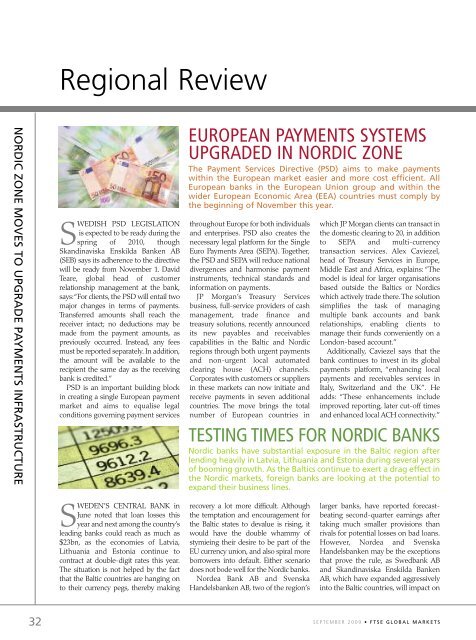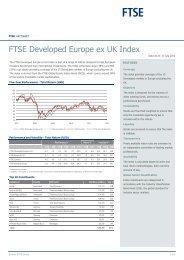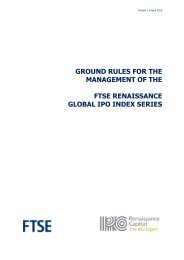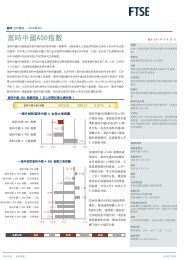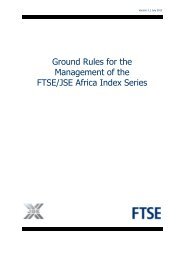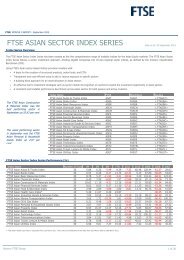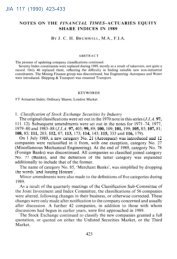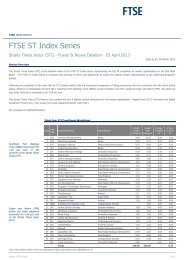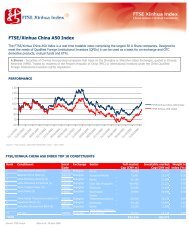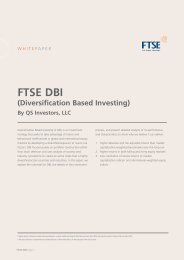Create successful ePaper yourself
Turn your PDF publications into a flip-book with our unique Google optimized e-Paper software.
NORDIC ZONE MOVES TO UPGRADE PAYMENTS INFRASTRUCTURE<br />
32<br />
Regional Review<br />
SWEDISH PSD LEGISLATION<br />
is expected to be ready during the<br />
spring of 2010, though<br />
Skandinaviska Enskilda Banken AB<br />
(SEB) says its adherence to the directive<br />
will be ready from November 1. David<br />
Teare, global head of customer<br />
relationship management at the bank,<br />
says:“For clients, the PSD will entail two<br />
major changes in terms of payments.<br />
Transferred amounts shall reach the<br />
receiver intact; no deductions may be<br />
made from the payment amounts, as<br />
previously occurred. Instead, any fees<br />
must be reported separately. In addition,<br />
the amount will be available to the<br />
recipient the same day as the receiving<br />
bank is credited.”<br />
PSD is an important building block<br />
in creating a single European payment<br />
market and aims to equalise legal<br />
conditions governing payment services<br />
SWEDEN’S CENTRAL BANK in<br />
June noted that loan losses this<br />
year and next among the country’s<br />
leading banks could reach as much as<br />
$23bn, as the economies of Latvia,<br />
Lithuania and Estonia continue to<br />
contract at double-digit rates this year.<br />
The situation is not helped by the fact<br />
that the Baltic countries are hanging on<br />
to their currency pegs, thereby making<br />
EUROPEAN PAYMENTS SYSTEMS<br />
UPGRADED IN NORDIC ZONE<br />
The Payment Services Directive (PSD) aims to make payments<br />
within the European market easier and more cost efficient. All<br />
European banks in the European Union group and within the<br />
wider European Economic Area (EEA) countries must comply by<br />
the beginning of November this year.<br />
throughout Europe for both individuals<br />
and enterprises. PSD also creates the<br />
necessary legal platform for the Single<br />
Euro Payments Area (SEPA). Together,<br />
the PSD and SEPA will reduce national<br />
divergences and harmonise payment<br />
instruments, technical standards and<br />
information on payments.<br />
JP Morgan’s Treasury Services<br />
business, full-service providers of cash<br />
management, trade finance and<br />
treasury solutions, recently announced<br />
its new payables and receivables<br />
capabilities in the Baltic and Nordic<br />
regions through both urgent payments<br />
and non-urgent local automated<br />
clearing house (ACH) channels.<br />
Corporates with customers or suppliers<br />
in these markets can now initiate and<br />
receive payments in seven additional<br />
countries. The move brings the total<br />
number of European countries in<br />
recovery a lot more difficult. Although<br />
the temptation and encouragement for<br />
the Baltic states to devalue is rising, it<br />
would have the double whammy of<br />
stymieing their desire to be part of the<br />
EU currency union, and also spiral more<br />
borrowers into default. Either scenario<br />
does not bode well for the Nordic banks.<br />
Nordea Bank AB and Svenska<br />
Handelsbanken AB, two of the region’s<br />
which JP Morgan clients can transact in<br />
the domestic clearing to 20, in addition<br />
to SEPA and multi-currency<br />
transaction services. Alex Caviezel,<br />
head of Treasury Services in Europe,<br />
Middle East and Africa, explains: “The<br />
model is ideal for larger organisations<br />
based outside the Baltics or Nordics<br />
which actively trade there.The solution<br />
simplifies the task of managing<br />
multiple bank accounts and bank<br />
relationships, enabling clients to<br />
manage their funds conveniently on a<br />
London-based account.”<br />
Additionally, Caviezel says that the<br />
bank continues to invest in its global<br />
payments platform, “enhancing local<br />
payments and receivables services in<br />
Italy, Switzerland and the UK”. He<br />
adds: “These enhancements include<br />
improved reporting, later cut-off times<br />
and enhanced local ACH connectivity.”<br />
TESTING TIMES FOR NORDIC BANKS<br />
Nordic banks have substantial exposure in the Baltic region after<br />
lending heavily in Latvia, Lithuania and Estonia during several years<br />
of booming growth. As the Baltics continue to exert a drag effect in<br />
the Nordic markets, foreign banks are looking at the potential to<br />
expand their business lines.<br />
larger banks, have reported forecastbeating<br />
second-quarter earnings after<br />
taking much smaller provisions than<br />
rivals for potential losses on bad loans.<br />
However, Nordea and Svenska<br />
Handelsbanken may be the exceptions<br />
that prove the rule, as Swedbank AB<br />
and Skandinaviska Enskilda Banken<br />
AB, which have expanded aggressively<br />
into the Baltic countries, will impact on<br />
S E P T E M B E R 2 0 0 9 • F T S E G L O B A L M A R K E T S


